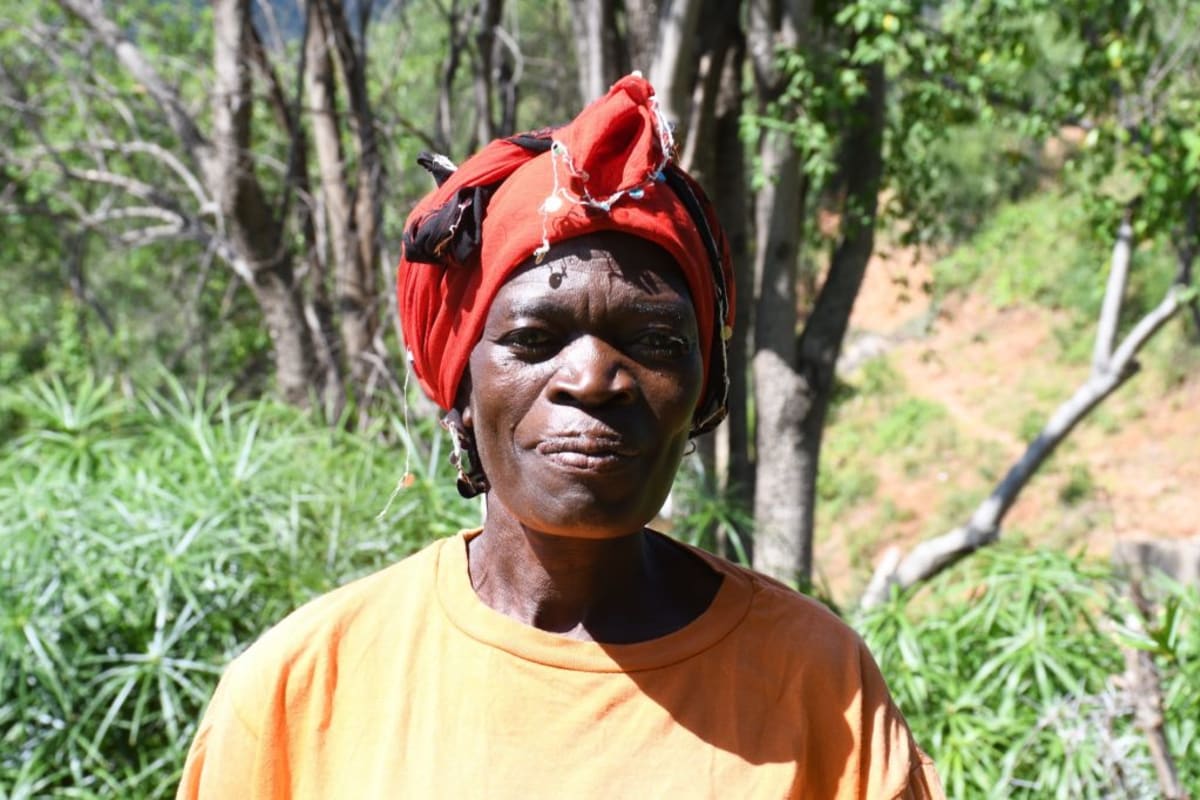"Our area suffers from a lack of a reliable water source which has greatly affected our way of life here," said Joel Kilonzo, a farmer living in Kasioni Community in southeast Kenya.
"Women have been waking up early and traveling for more than 4 kilometers to the Kase River in search of water. The water is not even safe because it is drawn from open river scoop holes. The water has exposed community members to health risks such as waterborne diseases."
Mr. Kilonzo and the 700 other people who live in Kasioni share the same experience trying to access water. They rely on seasonal rivers to fetch water to use for everything from cooking to bathing and drinking. The community members report frequent cases of waterborne diseases including dysentery, typhoid, bilharzia, ringworms, and other stomach complications. The time lost and money spent treating these illnesses has a significant cost on people here.
"I have had bad water experiences since the time I was married here. During the dry season, I wake up at 4:00 in the morning to walk for more than 3 kilometers to the Katse River in search of water - sometimes with my children," shared Tabitha Mulatya, another farmer we met while visiting the community.
"It has never been easy walking in the darkness and endangering my life in search of water. Only God has been protecting me."
The long hours spent walking to and queueing at the water points have caused a lot of fatigue to community members and loss of valuable time. The majority of the community members rely on farming as their main source of income. Their primary crops include pigeon peas, cowpeas, green grams (mung beans), and millet. Water is an essential part of their lives. The time spent getting water could otherwise be spent working on the farm, taking care of family needs, or focusing on the many other responsibilities that are sacrificed as a result of their water crisis.
This community group is found in a rural setting on the slopes of Mumoni Hills which rests near the border of Kitui and Embu Counties. The area is generally hilly and made up of steep slopes with average vegetation cover made of a majority of indigenous trees. An average house here is made of bricks with iron sheets for the roof. Some homes use grass thatching for roofs. A majority of the houses lack cemented floors and the walls are not plastered.
Most of the latrines we observed at homesteads are made of mud floor slabs and the walls made of bricks. They are well-roofed with iron sheets and fitted with doors made either of wood or pieces of clothing.
Reliable Water for Kasioni
Our main entry point into Kasioni Community is the Kamami Self-Help Group, which is comprised of households that are working together to address water and food scarcity in their region. These members will be our hands and feet in both constructing water projects and spreading the message of good hygiene and sanitation to everyone.
Hand-Dug Well
This particular hand-dug well will be built adjacent to a sand dam project, which will supply clean drinking water once it rains. We have supplied the group with the tools needed for excavation. With the guidance of our artisans and mechanics, the excavated well will be cased, sealed with a well pad, and then finished with a new AfriDev pump.
Excavation takes a month or more on average, depending on the nature of the rock beneath. Construction of the well lining and installation of the pump takes 12 days maximum. The well will be lined with a concrete wall including perforations so that once it rains, water will filter in from the sand dam.
This well will be located in Kasioni Village and will bring clean water closer to families.
New Knowledge
These community members currently do their best to practice good hygiene and sanitation, but their severe lack of water has been a big hindrance to reaching their fullest potential.
We will hold hygiene and sanitation training sessions with the Kamami Self-Help Group and other community members to teach about important hygiene practices and daily habits to establish at the personal, household, and community level. This training will help to ensure that participants have the knowledge they need to make the most out of their new water point as soon as water is flowing.
One of the most important topics we plan to cover is the handling, storage, and treatment of water. Having a clean water source will be extremely helpful, but it is useless if water gets contaminated by the time it is consumed. We will also emphasize the importance of handwashing.
We and the community strongly believe that all of these components will work together to improve living standards here, which will help to unlock the potential for these community members to live better, healthier lives.
We typically work with self-help groups for 3 to 5 years on multiple water projects. We will conduct follow-up visits and refresher trainings during this period and remain in contact with the group after all of the projects are completed to support their efforts to improve sanitation and hygiene.

 Protected Dug Well
Protected Dug Well
 Rehabilitation Project
Rehabilitation Project


































